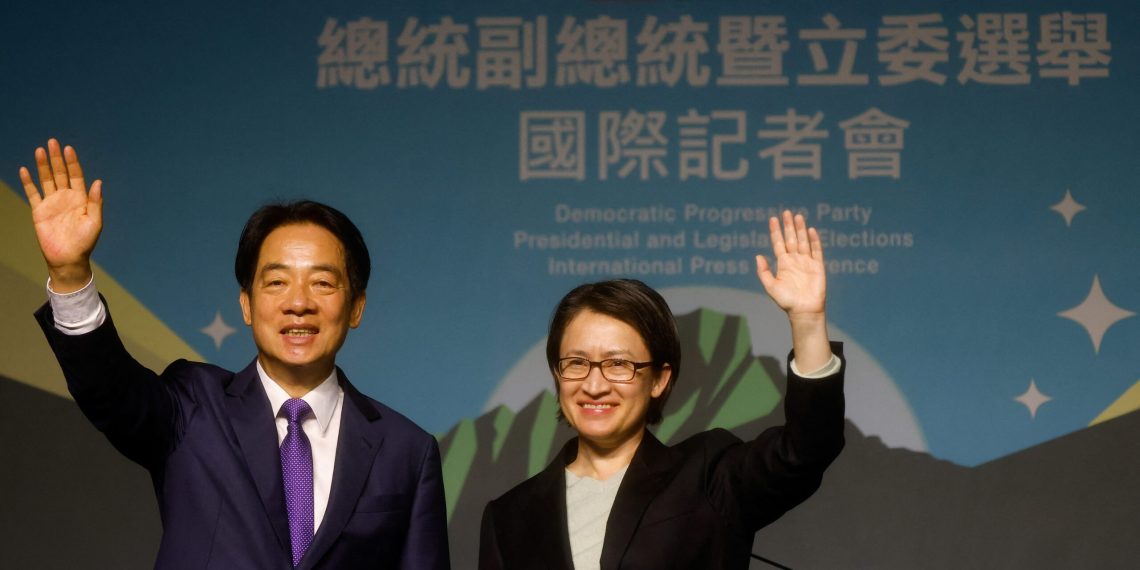No products in the basket.
South Asian countries support China’s claim over Taiwan following Taiwan’s 2024 elections, showcasing Beijing’s economic and political influence in the region.
Following Taiwan’s 2024 elections, South Asian countries have demonstrated their alignment with China by supporting Beijing’s claim over Taiwan.
Key Takeaways
- South Asian countries, except for India and Bhutan, expressed strong support for China’s “One China” principle and its claim over Taiwan, showcasing Beijing’s influence in the region.
- The statements of support from South Asian nations underscore China’s success in using economic and political influence to control the narrative about Taiwan and consolidate its claims.
- The responses from South Asian countries highlight the growing influence of China in the region, particularly through the Belt and Road Initiative, and signify the increasing importance of the Indian Ocean in geopolitical competition.
This shift highlights the significant economic and political sway that China holds in the region. For example, Bangladesh, a key partner in China’s Belt and Road Initiative, has reiterated its support for the “One China” policy, while countries like Nepal and Sri Lanka have also shown solidarity with China.
Additionally, China’s economic investments in these countries have fostered closer ties and influenced their stance on sensitive political issues. This alignment with China not only reflects the growing influence of Beijing in South Asia but also underscores the complex geopolitical dynamics at play in the region.
Afghanistan, Bangladesh, and Maldives Back ‘One China’ Principle
Afghanistan, Bangladesh, and Maldives reaffirmed their commitment to the ‘One China’ principle, emphasizing regional peace and stability. While Bangladesh took a cautious approach, Maldives explicitly opposed any interference in China’s internal affairs.
The strong backing from Afghanistan, Bangladesh, and Maldives for China’s claim over Taiwan highlights a united front in South Asia that prioritizes regional peace and stability. Afghanistan’s alignment with the ‘One China’ principle underscores a shared commitment to respecting China’s territorial integrity, with Bangladesh opting for a cautious approach to avoid stirring tensions. Meanwhile, Maldives boldly rejects any outside interference in China’s internal affairs, firmly asserting the importance of upholding diplomatic norms.
Nepal, Pakistan, and Sri Lanka Affirm ‘One China’ Policy
Leaders in Nepal, Pakistan, and Sri Lanka have unequivocally reaffirmed their support for China in the wake of Taiwan’s recent elections, aligning themselves firmly with Beijing’s ‘One China’ policy. In Nepal, President Bidya Devi Bhandari stressed the need to maintain a strong relationship with China, emphasizing the historical ties between the two nations. Meanwhile, Pakistani Prime Minister Imran Khan reiterated his country’s commitment to the ‘One China’ policy, underscoring the importance of respecting China’s sovereignty and territorial integrity. Additionally, Sri Lanka’s President Gotabaya Rajapaksa praised China’s stance on Taiwan, highlighting the significance of a peaceful reunification. This collective backing from South Asian nations signifies a united front in support of China and its policies regarding Taiwan, consolidating regional alliances and cooperation within the broader geopolitical landscape.
Geostrategic Implications of South Asia’s Response
South Asia’s alignment with China’s position on Taiwan underscores Beijing’s growing influence in the region through economic partnerships. The region’s support reflects China’s success in shaping the discourse on Taiwan, showcasing the diplomatic power of economic ties.
Most South Asian countries expressed support for China’s claim that Taiwan is part of its territory, in line with the “One China” principle. These statements reflect China’s influence in the region and its economic and political strategies. While some countries like Bangladesh responded with caution, others like the Maldives and Nepal strongly supported China’s stance.
The text also highlights India’s notable silence on the matter, contrasting with the Dalai Lama and Tibetan leaders in India who conveyed support for Taiwan’s democratic process. Overall, the responses reveal how China’s economic power is shaping the discourse on Taiwan in South Asia, as Beijing seeks to solidify its claims and influence in the region.
Read original article here: South Asia sides with China after Taiwan’s elections
Discover more from Thailand Business News
Subscribe to get the latest posts sent to your email.












